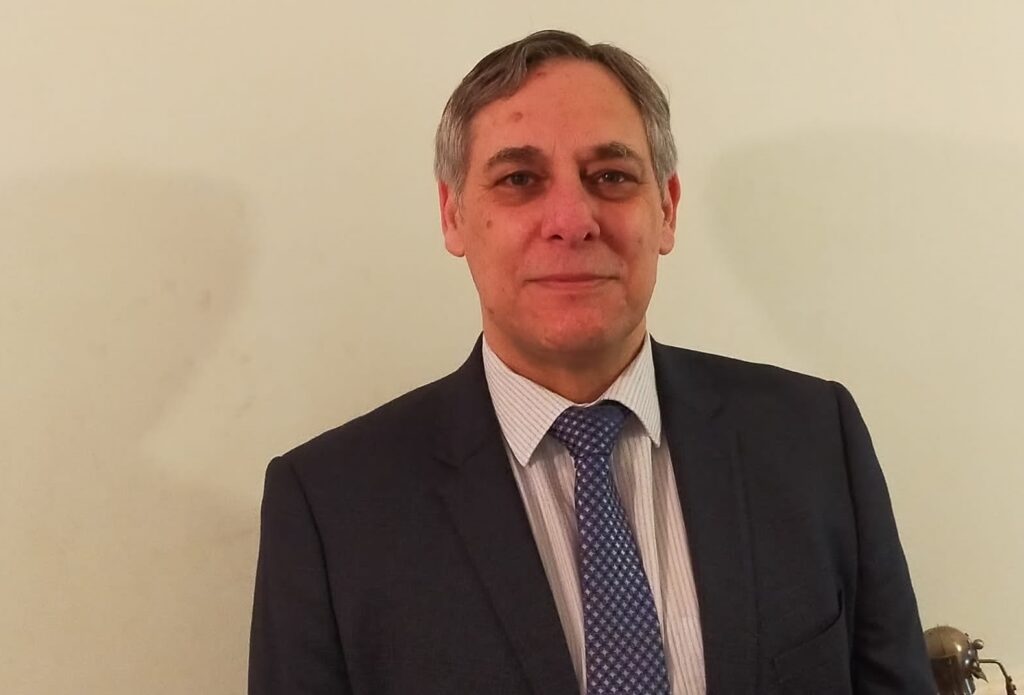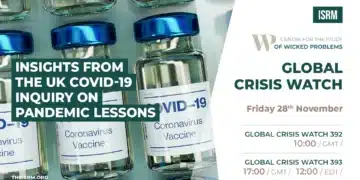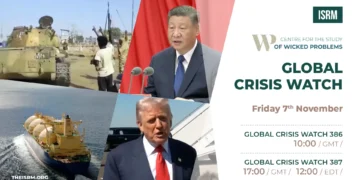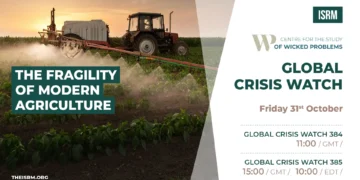Recently, Security on Screen Founder and Director, Peter Mawson, got the chance to sit down with the Executive Director of the The Institute of Strategic Risk Management, Dr David Rubens in a wide ranging conversation which covered several topics including the ISRM and what it does, as well as current goings on in the world, and AI. In this first instalment, Dr Rubens tells Peter Mawson about the ISRM’s weekly Global Crisis Watch series, and about some of the developments within the organisation.
To our audience, the ISRM might be best known for its weekly Global Crisis Watch series, which delves into the current affairs and the geopolitical implications, can you tell me how the series started?
DR: “The Global Crisis Watch was set up right at the beginning of COVID. It was originally called the Coronavirus Camp Fire, and we set it up in March 2020 when the world was in a global lockdown.
“It was designed to allow people to come in and have a chat about whatever they felt was relevant to them within that global lockdown context. Here we are five years later and we’re still going strong, up to #362 (at time of publication). Every Friday, we have two sessions, one in the morning, and one in the afternoon, so people can come in from wherever they are in the world.”
“I think the fundamental difference between now and five years ago is just the rate of change in the news cycle. I mean, do you remember the Israeli attacks on the Iranian nuclear facilities or the 12-day war between India and Pakistan, I mean, there was a war, and it moves on so quickly that what was absolutely global headlines, three days later has been set back to page 17.
“So, I think that what the GCWs do is allow people to really have their finger on the pulse of what is happening in a more meaningful way, as we try to get beneath all the headlines and offer that real expert insight into what it all means.”
“What we’ve had for the last five years is a global real-time longitudinal record of what the world is going through, which will go down in history as unprecedented times. The Global Crisis Watch series offers an opportunity to really hear the whole story, get to the heart of the story, and feel that pulse beat of the world.
“Our contributors in the series are people who are there in these regions, and understand what’s going on. This global dialogue, I think that’s very important.
“A lot of the people who are on those calls create connections with other people who are on the calls and they’re free to follow up with each other after the calls.
“Some of the people are regulars – they’ve been coming for four or five years and I think in general right now today, being part of a community is an is important and valuable thing. So, I think there are genuine benefits on multiple levels.”
And the Institute is clearly growing. We’ve published on a number of new chapter launches for you. What’s what does that growth curve look like?
DR: “It looks very exciting, to be honest, and what we’re seeing is a move from national chapters to regional hubs as the chapter model feels quite isolated now. So, for example, we have a North American hub, which includes Canada, Mexico, US West, US Central and US East, and we have the APAC hub, which is Malaysia, Thailand, Malaysia, Singapore, Philippines and Indonesia and that is in itself amalgamated with Australia / New Zealand hub.
“We have a conference here in London in a couple in a couple of months’ time. We have a conference in Jakarta in two weeks’ time. We have a conference in Singapore. We have one in Cyprus and we have one in Belgrade this year. So, I think that just shows the scale and reach the ISRM is having, with all of these local partners.”
“I do also think that there is a feeling of slowing down and consolidating and allowing organic growth to happen in what are as we all know very challenging times, let’s face it. But the fact that we are having that sustainable growth demonstrates that the ISRM has a message the world wants to hear.”
Check out the next instalment in this conversation in a couple of weeks’ time.
For more ISRM news, click here





